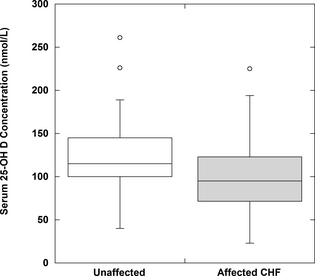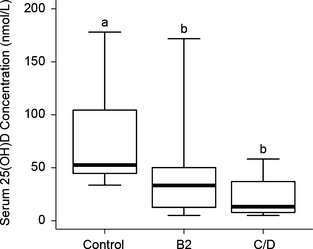
Research in both human and veterinary medicine shows vitamin D to be an independent risk factor for adverse cardiac events. Two recent studies looked at the association between Vitamin D levels and Chronic Valvular Heart Disease (CVHD).

Kraus, et. al., found that in dogs, low stores of 25(OH)D were associated with CVHD, as well as a 2.6 times greater hazard of having a cardiovascular event. Asymptomatic dogs were not part of this cohort.

More recently, Osuga, et.al., compared Vitamin D status on patients with B1 asymptomatic CVHD to those with B2 and C/D.
Results show a significant drop in Vitamin D status as CVHD worsens and may indicate an association between Vitamin D status and cardiac remodeling. While the mechanism of action is not entirely clear, it is believed endothelial dysfunction, secondary to Vitamin D insufficiency, plays a major role for the greater hazard risk.
